By Ana Rodriguez Soto - Florida Catholic newspaper
Photography: ANA RODRIGUEZ-SOTO | FC
OSWIECIM, Poland | I thought I was prepared.
Truth be told, I’ve visited many historical sites; I've tried mightily to connect, by walking the same path, my present with their past.
But I could never feel it, really. Put
Then I came here: Auschwitz and Birkenau.
I really wanted to come. I figured I had seen the pictures, the barracks and barbed wire, the striped uniforms and cadaver faces. I knew the history. I would just add it to my bucket list.
But this — nothing prepared me for this: A place where veteran tour guides pause to choke back tears.
A place of emptiness, of minimal imagery, save for empty barracks and dusty streets, for smokestacks and forest.
A place where silence speaks more than any words can express.
A place that moves visitors to touch the bricks and bow their heads and pray for people whose names they will never know but whose shared humanity becomes instantly palpable.
A place that simply makes us weep.
The two most notorious concentration camps of World War II sit amid green fields and white houses ringed with blooming flowers.
Which again raises the questions in my mind: How could this happen? How could no one see?
It took hundreds to keep these places going — humming, really, the machinery of death.
And when it became too much, too many, too small — Auschwitz — they built another one — Birkenau. Not a repurposed, make-do, Polish army barracks, but a thoughtfully designed German killing machine, with railroad tracks leading straight to the entrance gate.
Again the haunting question: How could this happen?
The hopeful answer: Never again.
But really, it keeps happening and we’re still not seeing. Bosnia. Rwanda. Iraq. Syria.
There is actually a pattern to genocide, said Hugh Huck, a theology teacher at St. Thomas Aquinas High School and a chaperone for World Youth Day. He spoke to the students in his group while the bus waited its turn in a long, long line of buses bringing visitors to the site.
Genocide happens in stages, not overnight, Huck said. “Genocide really begins with divisiveness.”
It’s a slow rebranding of people by means of:
- Classification: Us versus them.
- Symbolization: Swastikas and yellow stars.
- Dehumanization: They’re not human. It’s an infestation.
- Organization: Start building walls, send people back.
- Polarization: “They” can’t be educated, must not hold certain jobs.
- Mobilization: Start creating ghettos and camps.
- Extermination: Once the genocide begins, “it’s fast and it’s brutal,” Huck said. In Rwanda, one million people were killed in four months.
- Denial.
“When we deny these things happen, we dishonor the dead. And in some ways, we all fall into it,” Huck said. “Genocides are well planned, years in advance. So we have time to intervene.”
And so history becomes the present.
Erick Frederick, 20, gets that. He’s one of four WYD pilgrims from San Isidro
“So looking at Auschwitz, it was, yes, a death camp and yes, this number of people died, but it’s not only the death camp,” he said. “The reason these places stand is (as) a memorial to everyone who was lost.
“But it’s not just for (that). It’s for other reasons, so other people don’t have to suffer.”
At the halfway point of the two-mile walk through Birkenau, where the railroad tracks end, stands a memorial to the victims. Nearby are places to sit and reflect, or simply take in the whole picture.
Today, for many of Miami’s pilgrims, it’s where the tears and the prayers began to flow.
Pope Francis has said that when he visits here this week, he will do so in silence. As we did.
But I don’t think he would mind hearing what we heard: a slow chant, sung by a large group of WYD pilgrims, that doubled as mourning and prayer:
“For the sake of his sorrowful passion, have mercy on us and on the whole world.”
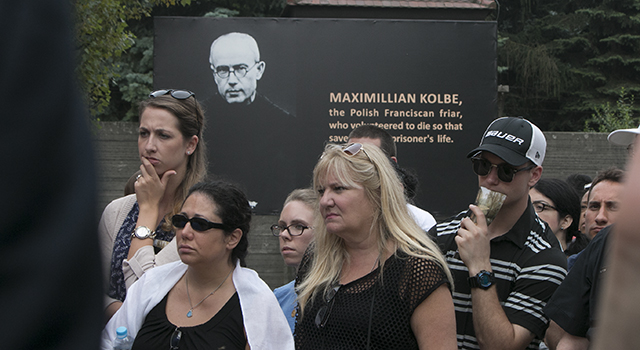
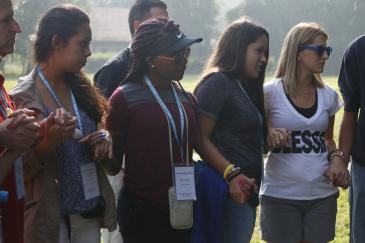
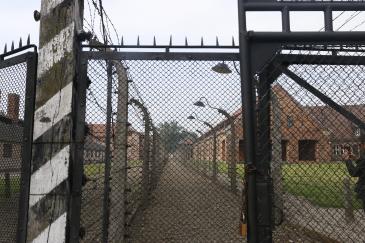
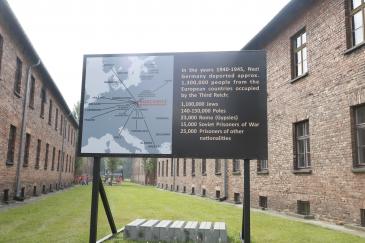
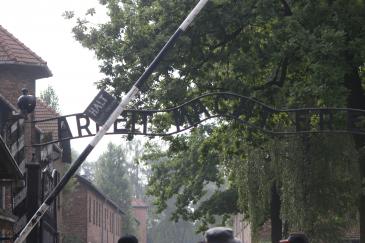
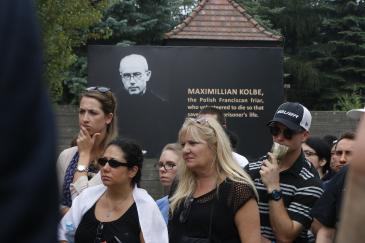
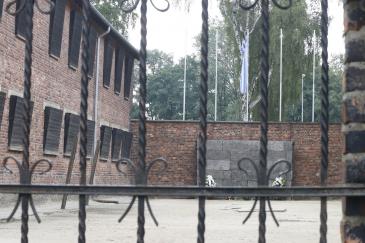
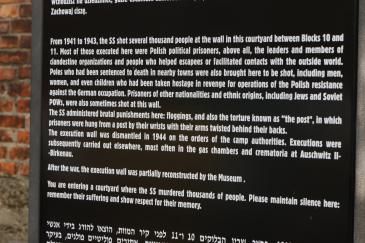
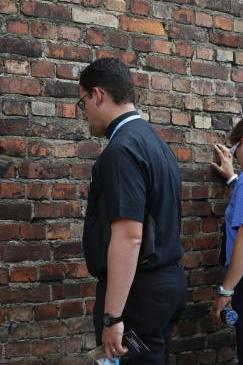
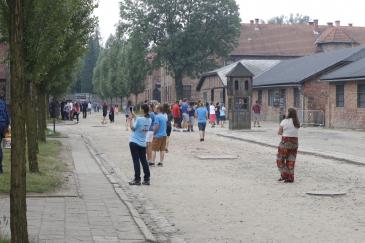
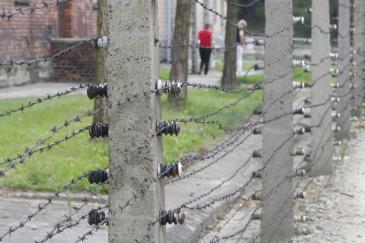
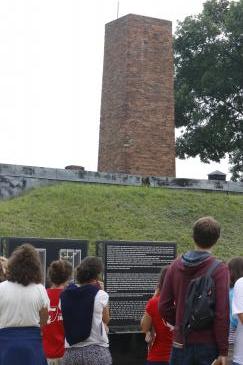
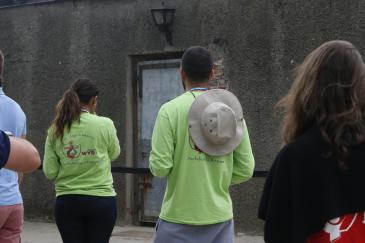
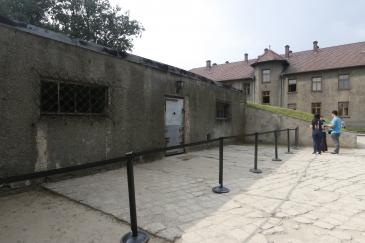
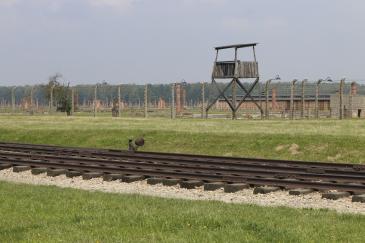
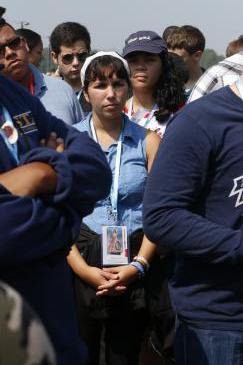
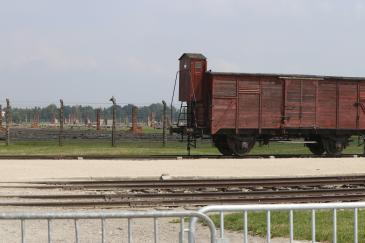
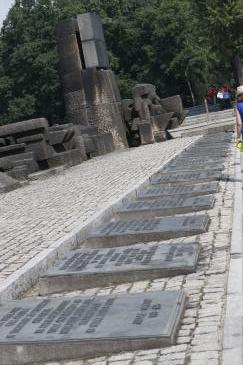
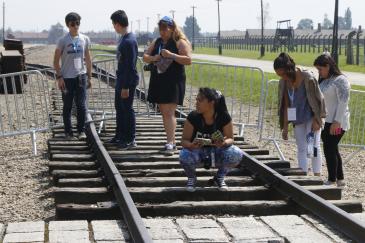
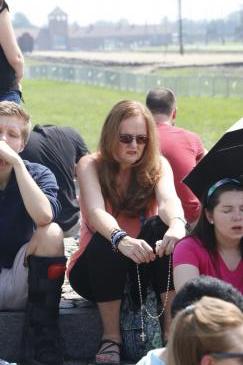
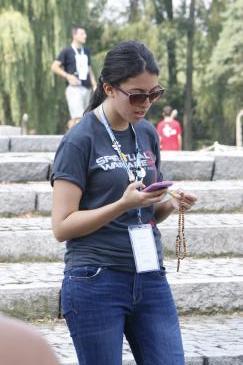
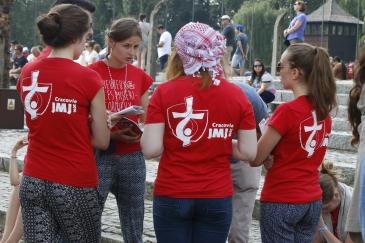
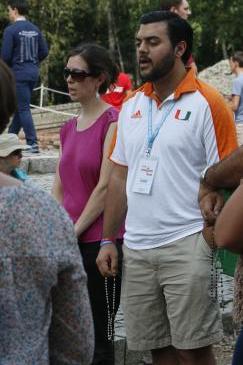
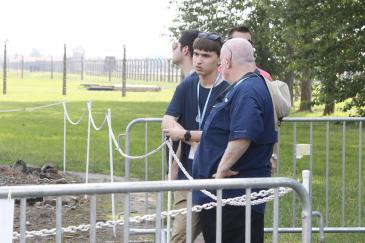
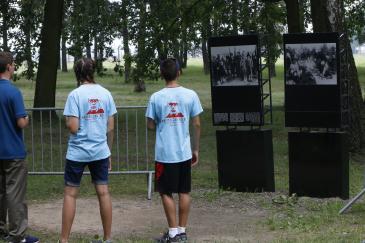
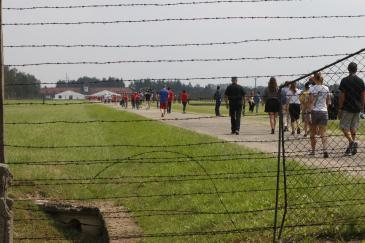
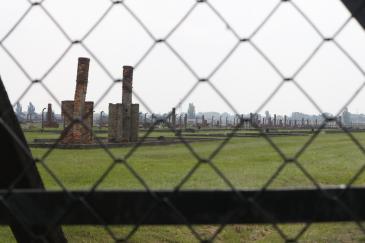
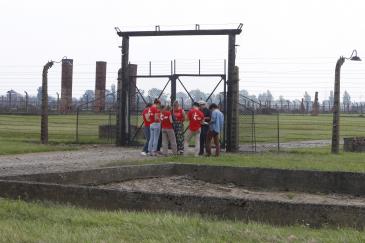
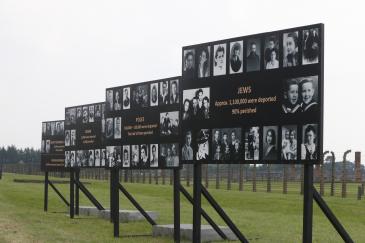
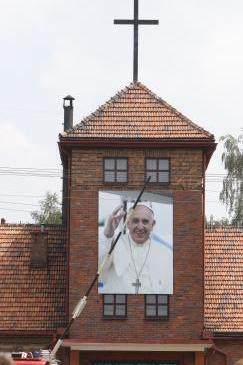

Comments from readers